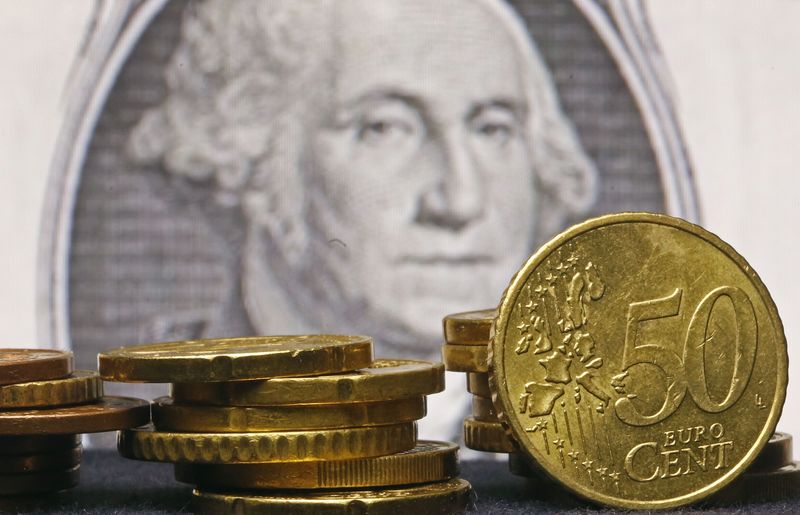Investing.com - The euro pushed lower against the U.S. dollar on Thursday, as positive U.S. jobless claims data added to optimism over the strength of the job market, fuelling further speculations over an early U.S. rate hike.
EUR/USD hit 1.0720 during U.S. morning trade, the pair's lowest since April 1; the pair subsequently consolidated at 1.0721, retreating 0.55%.
The pair was likely to find support at 1.0648, the low of March 20 and resistance at 1.0957, the high of April 7.
In a report, the U.S. Department of Labor said the number of individuals filing for initial jobless benefits in the week ending April 4 rose by 14,000 to 281,000 from the previous week’s total of 267,000.
Analysts had expected initial jobless claims to rise by 18,000 to 285,000 last week.
The data came after New York Federal Reserve President William Dudley said on Wednesday that the timing of a rate hike depends on economic data and added that a rate hike in June could still be possible if the labor market recovery remained strong.
Fed Governor Jerome Powell said he would be willing to start tightening policy despite current low levels of inflation, adding the Fed could act in June if economic data over the next two months showed that the recovery remained on track.
Meanwhile, Wednesday’s minutes of the Fed’s March meeting showed that several officials believe the economic outlook is likely to warrant an interest rate hike in June.
The euro shrugged off data earlier showing that German industrial production rose 0.2% in February, ahead of expectations for a 0.1% gain as the production of energy and capital goods increased.
Another report showed that German exports rose 1.5% in February while imports also increased, pointing to growth in the region’s largest economy.
The euro was higher against the pound, with EUR/GBP adding 0.10% to 0.7257.
In the U.K., the Office for National Statistics said the country's trade deficit widened to £10.34 billion in February from £9.17 billion in January, whose figure was revised from a previously estimated deficit of £8.41 billion. Analysts had expected the trade deficit to hit £9.00 billion in February.
Also Thursday, the Bank of England left interest rates unchanged at their current record low of 0.50%, where they have been since March 2009. The central bank also maintained the stock of asset purchases financed by the issuance of central bank reserves at £375 billion.
